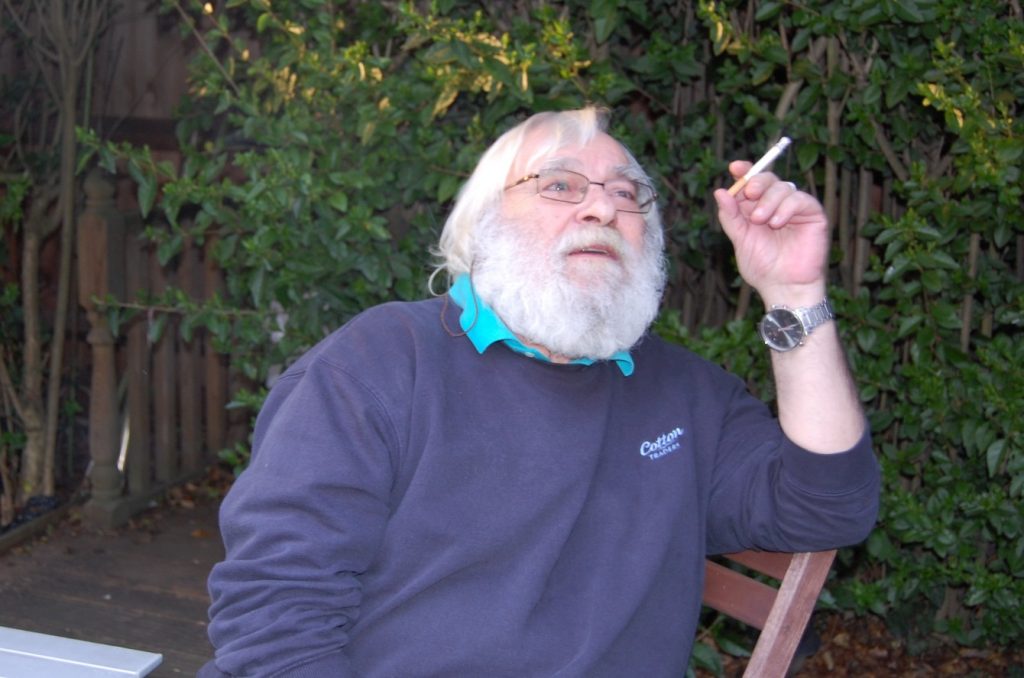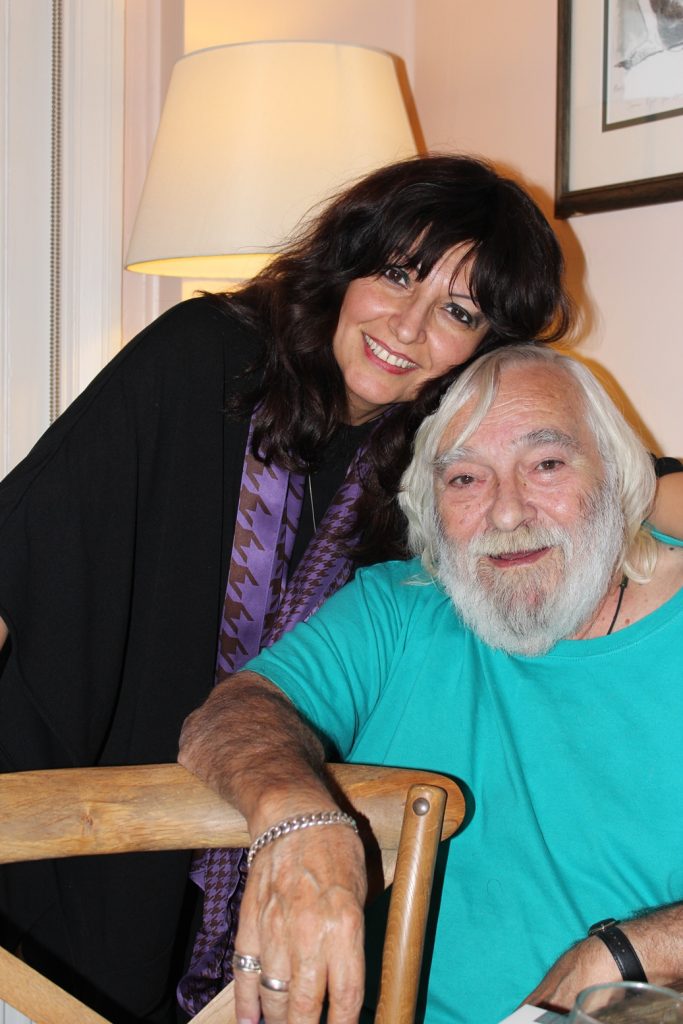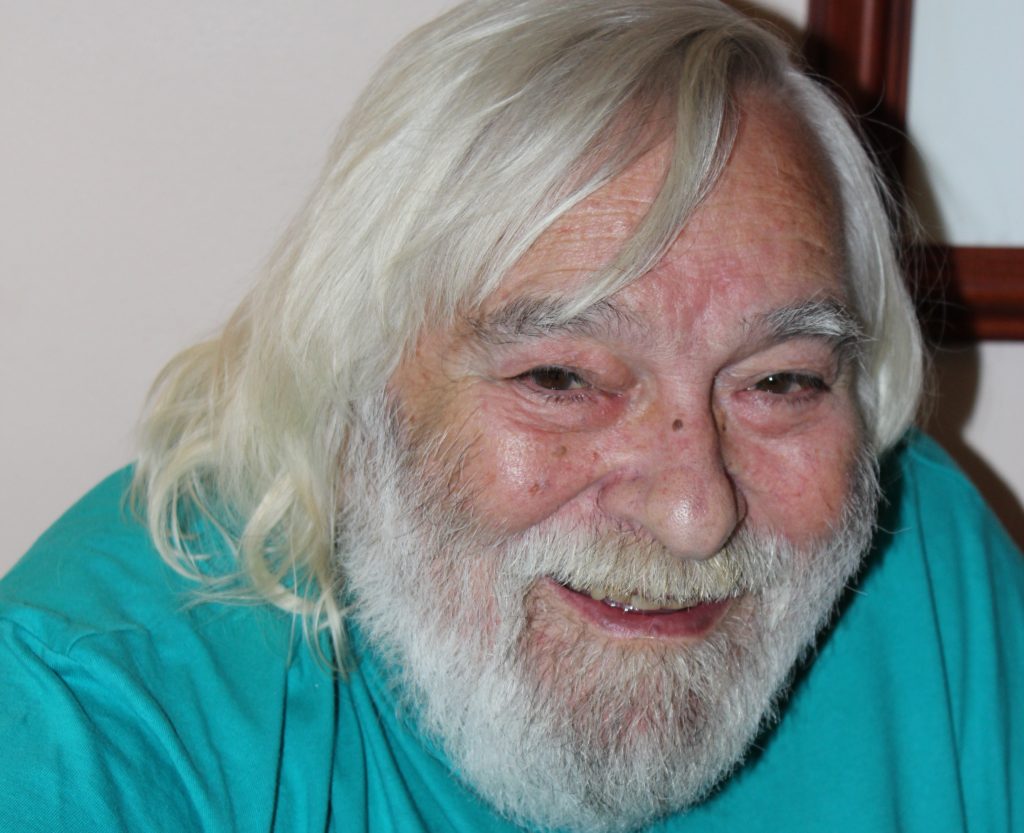It is very difficult to write an obituary if the person was very dear to you and held a special place in your life. You try to put the words together, but after a while the blank paper in front of you remains just the same as you had started, completely blank. This happened to me when I tried to write something about Musa Moris Farhi who sadly passed away on the morning of 5th March.
Moris for us was affectionately known as Musa. That was the name he was called Musa since his birth in Turkey. He wanted to be called Musa, especially in his inner circle and within the Turkish community. He was everyone’s ‘Musa Ağbi’ (older brother), he was very much respected, a role model and was looked up to and admired as a prominent writer from Turkey living in Britain.
Musa was born in Ankara, Turkey in 1935 to a Sephardic Jewish family. After finishing his studies at the renowned Robert Academy in 1954 in Istanbul, he came to the UK and started studying at The Royal Academy of Dramatic Art. After his graduation in 1956, he had a brief career as an actor and then took up writing.
Musa wrote numerous novels, plays, television scripts, poems and articles. His book ‘Young Turk’ was one of his most significant writings, covers multicultural Istanbul from the 1950s when he was a teenager. Reminiscing, he always talked about this period with love, passion and longing. It was during a time when everyone in the city, whether a Jew, Muslim or Christian were all living together and helping each other in their neighbourhoods. He always talked about this time with great affection, explaining what a profound impact it had on him and how it had shaped his outlook on life.

In our many conversations over the years with Musa, the subject of Turkey was always the focal point for us. Turkey’s politics was on the main agenda and many times we talked about being Turkish, coming to a different country, living in a different country and making the new country our new home. He often said he felt at home in the UK, but his longing for Turkey was always there and his home in Turkey was always special to him.
In one of our interviews (which is in the process of being transcribed) Musa said that he still frequently felt he was living in a place far from home, which in Turkish we describe as ‘gurbet’. He said, “I do still feel in ‘gurbet’, even after sixty years of settling in this country. You can separate yourself from your roots, but your roots never leave you. It is like a fish, which is taken out of water. I have not lost my Turkishness and I will have this feeling until I die.”
He described ‘gurbet’ as a tragedy and called it “a sad despair”. I have been conducting research in this area for many years and have never heard anyone express ‘gurbet’ as a tragedy. Musa would call it a tragedy as once you moved away, you cannot go back, as nothing is the same in the country you left.
Musa Moris Farhi after 60+ years of being in the UK: “You can separate yourself from your roots, but your roots never leave you…I have not lost my Turkishness, I will have this feeling until I die.”
I think the feeling of being away far from home was one of the prime reasons for his involvement with the movement calling for the release of imprisoned writers. He became the Vice-President of International PEN in 2001 and campaigned for writers persecuted or imprisoned by repressive regimes across the world.
He knew very well the feeling of being away from the country of one’s birth, culture and language. He wanted to give imprisoned writers a voice and bring change to their enforced predicaments. For that he devoted endless amounts of time to campaign for human rights, a reflection of his passion for humanism, justice, freedom and peace.
He always viewed women rights fundamentally as human rights. And he would often say with a big smile, “If anything would change seriously in this world it will be [through] the work of women”.
He fought all his life for a free world, a borderless world and against injustice. He advocated for freedom of expression around the world, ideals that were embodied in his stories, novels, poems, plays and observations.

Musa Farhi received many awards and was honoured for his writings. He was made a Member of the Order of the British Empire (MBE) in the Queen’s Birthday Honours List on 16 June 2001, for ‘services to literature’.
He was a storyteller, a very good storyteller. His stories captivate the reader with their enthusiasm right until the very last word, providing one with more than just knowledge: there was also a touch of kindness and humanity. His writings are culturally diverse, heartfelt, rich, strong, entertaining, warm, sensual, inspiring and fluent.
Musa Moris Farhi was awarded an MBE in the Queen’s Birthday Honours List in June 2001 for ‘services to literature’
He was a philosophical thinker and a dreamer with a huge heart, but with a heart bigger than his human body. With this heart he enriched people’s lives, became their inspirational guide and their role model. He was like a magician touching everyone’s inner feelings and a man of immense intelligence and compassion.
He donated his extensive library, comprising over 19,000 books, to the Robert Academy, Istanbul, where he studied, which is now known as Boğazici University. He was very determined to donate his extensive library specifically to Turkey.
Musa’s works have been translated from their original English into many international languages among them Arabic, French, German, Hebrew, Italian and Turkish.
He was a Fellow of The Royal Society of Literature and The Royal Geographical Society.
My last conversation with Musa was a fortnight before his passing, prior to my trip to Turkey, and I had arranged to see him shortly upon my return. Unfortunately, I received the sad news from my family when I landed in London that our dear friend Musa had passed away that very morning.
We already miss him dearly.

He has left behind a huge void in everyone’s life that had come to know him. His gentle nature will be missed by many whose lives he had touched. And I will miss him and all the conversations we had while sitting around the table sharing a glass of wine whilst discussing many subjects and listening to his stories and tales with his wonderful entertaining unique voice.
Musa was married to the late Nina Farhi in 1978, a psychoanalytic psychotherapist, who passed away in 2009. He is survived by his partner Elaine Freed, stepdaughter Rachel Sievers, and by his granddaughter Zara.
‘This is where we start
at the bottom of the abyss
We will journey
alone
until
you and they
join us
We will climb
the fires of the sky
we will scale
the darkness of the underworld
We shall not possess
earth to sit on
sea to wade in
there will be
only
the agony of kissing tears
the burnt boats
the beds of stone where we cannot love languidly
We will not stop
until
words can be spoken again
songs find the faith to be born
freedom is raised from its pit of cadavers
We will not stop
until
we reach
the rainbow land we promised our children.’
– by Musa Moris Farhi-





